GUYANA | Former Slave and Village Movement pioneer Cudjoe McPherson honoured by descendendants
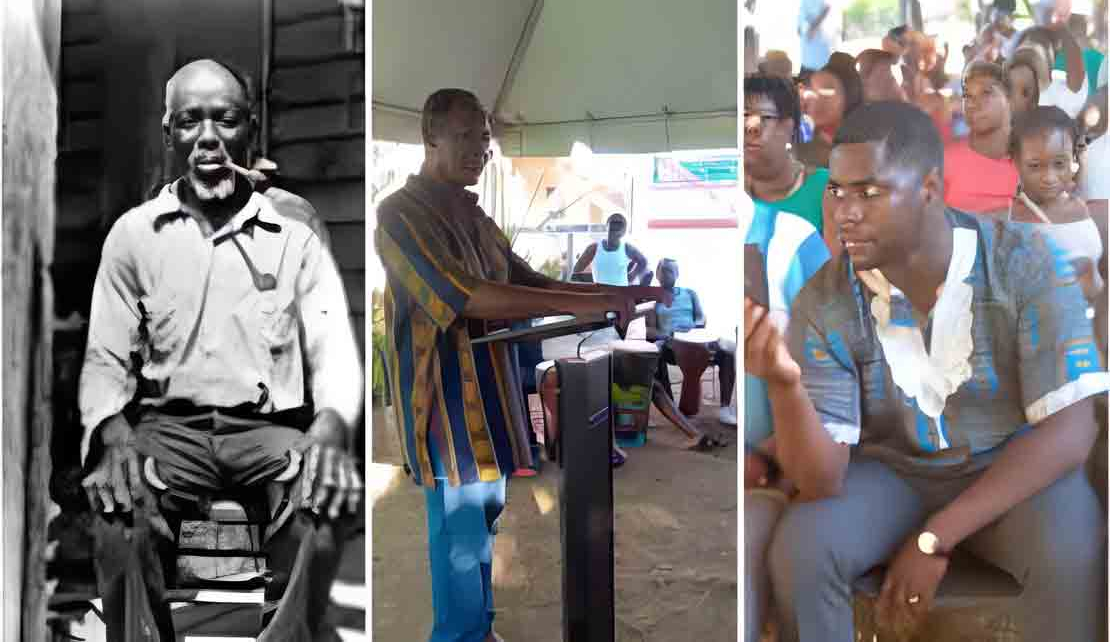
GEORGETOWN, Guyana, August 28, 2023 - During Emancipation month, the village of Kingelly, West Coast Berbice, came alive with drumming, feasting, reflections and inspirational talks held in honour of Mr. Cudjoe McPherson, one of Guyana’s earliest pioneers of the Village Movement.
Family members and friends travelled from the United States, Caribbean and around Guyana, joining with villagers as the over 130 people gathered for the event, in honour of the former slave and village movement pioneer, held on August 6, 2023.
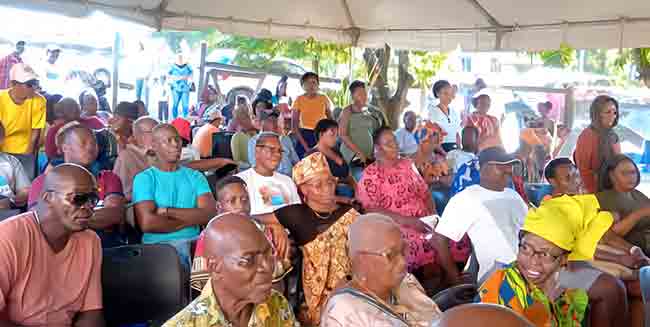
On January 10, 1850, Cudjoe and Jessy Cameron bought plantations Kingelly and Phoenix on the West Coast Berbice. Cameron took Phoenix while Cudjoe held on to Kingelly.
In 1868 Cudjoe surveyed the southern side of the public road and sold that side to 32 individuals. The entire northern side of Kingelly public road he kept for himself.
This is evident by Transport No. 4246, dated 6th July 1851, which is in his name. This piece of transported property was never sold or transferred to anyone. Under Guyana’s laws therefore, his heirs become automatic beneficiaries.
Former Prime Minister and Mayor of Georgetown, Mr. Hamilton Green, in delivering the feature address to mark the occasion, advised of the necessity to not only hear of Cudjoe’s achievements but also to pursue and embrace them.
He impressed on listeners the importance of educating themselves of their history and if we are to “vindicate Cudjoe, we must work together as a team,” cognisant that we are dealing with a formidable enemy - the People’s Progressive Party/Civic - that has no problem imposing another form of slavery on Guyanese.
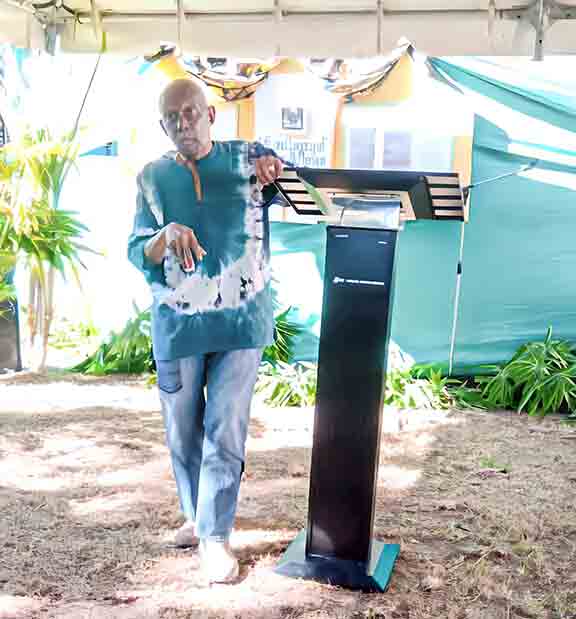
This is because he understood the relationship between man and the environment and how to engage in development activities that would ensure the protection and survival of both.
Working People’s Alliance (WPA) Executive Member, Dr. David Hinds, in his presentation spoke of the importance of learning from our past, protecting and defending what African forebears have bequeathed.
He encouraged the gathering that everyone should have an affinity to Cudjoe because he represented resiliency, achievement, and determination. He went on to emphasize the importance of this ‘kinship,’ particularly in light of the government’s marginalisation of Africans and dispossessing them of ancestral lands.
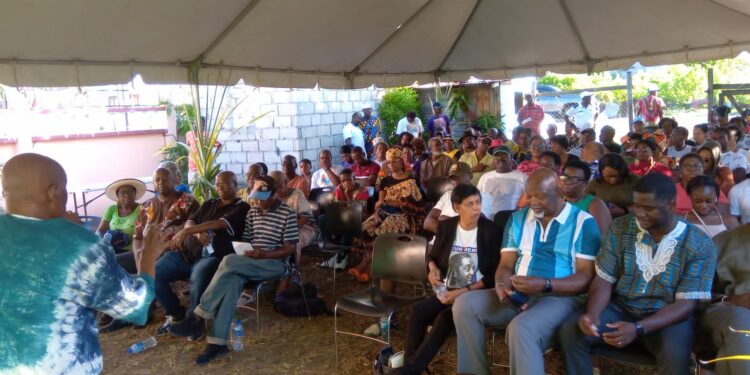
This was discontinued in the 1960s and later some residents acquired transport by prescription. In 1967 Mr. Joseph McPherson, Cudjoe’s great-grandson reasserted his family rights to the property by conducting a survey.
A commencement order for Kingelly to be converted to a Land Registration Area was issued in 1970. This order was never implemented and Kingelly continues to be a deed registration area.”
Saul went further to say that recognising the threat from land grabbers, the descendants of Cudjoe have made tremendous efforts to bring the property under the names of living descendants. In the 1990s some records were lost when the family legal representative office was razed by fire.
“Today we are confronted with a renewed threat. Squatters are being encouraged by senior state officials to occupy portions of lands within Cudjoe Park.”
Danny Ainsworth, former minister in the Forbes Burnham government, exhorted the family to see the lands they occupied not only as a home but homestead to be used for economic purposes by engaging in activities that could lead to the creation of jobs for themselves and families.
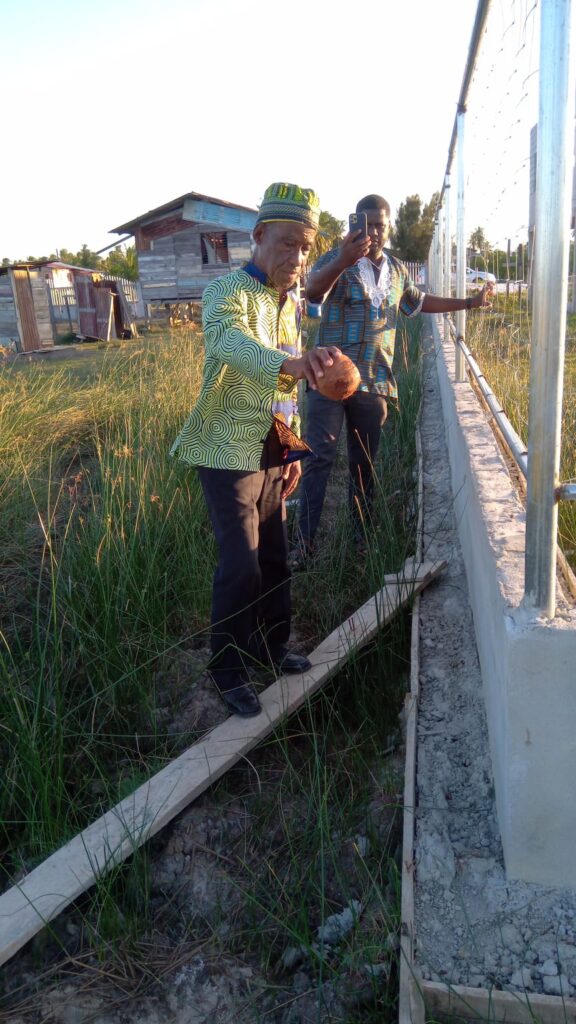
Though the house has visible signs of wear and tear, the family told Village Voice that plans are in place to refurbish the house with the aim of preserving it as a historical piece.
After the event family and friends, accompanied by drums, walked to the back of the village where they performed a libation ceremony and unveiled a plaque erected in honour of Cudjoe, that great son of Guyana.
The man, Cudjoe McPherson
From the records Cudjoe was literate, a community leader, entrepreneur and someone of great influence. His influence was such that on 10th September 1858 he wrote Governor P.E. Wodehouse pleading clemency for a villager, Mr. John McDonald
He also held counsel with the Stipendiary Magistrate. Magistrate Wolseley writing in Circuit Stipendiary Magistrates’ Journal for the period 22nd June to 1st of July inclusive, 1841, had this to say:
“I halted to ascertain, among other matters, whether anything in the shape of breakfast could be mustered, and in half an hour was served in the schoolroom of the estate with a very acceptable dish of poached eggs and ham, cassava and wheaten bread, and a bottle of excellent beer, for which I am indebted to Mr. Cudjoe Mc Pherson, an intelligent black man, who originally bought the property for the sum of 9,000 guilders, (6421.17s.ld.) and sold it out in plots to his fellow – labourers, once slaves on the very estate of which they are now the landlords; their number has, however, been added to by several purchasers from Foulis and other estates in the neighbourhood.
“Mr. McPherson, as the original purchaser, obtained a transport of the entire estate in November; but he has not as yet given a transport of the land that has been purchased of himself.
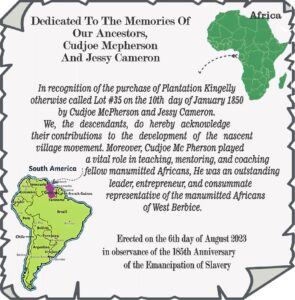
“Hitherto Cudjoe McPherson had himself taught the children to read; but on the day of my visit a white schoolmaster was about to take over the charge, for whom a house and school room had just been finished.”
Cudjoe had two children, a son and daughter. The daughter died as a toddler and his son produced seven children, four males and three females. Their names are Samuel, Dobson, Scott, John, Mathilda, Henrietta and Alice.
Trade unionist, Mr. Lincoln Lewis, who is Cudjoe’s great-great-great-grandson, said what he knows of this “great ancestor” is what was taught to him by his great uncle, Henry Young, who was the great grandson of Cudjoe.
One family member, who travelled from New Jersey, told Village Voice News she looked forward to the event.
She recalled being told as a child, by her father, of Cudjoe’s achievements and said he carried these stories with pride and was happy to be among relatives and friends sharing and learning more of her ancestor.
The meaning of ‘Cudjoe’
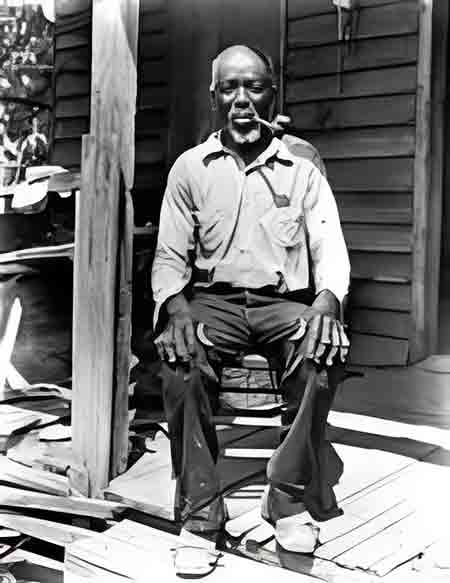
With over 20 million members the Akans are one of the biggest ethnic groups in West Africa today.
The Akan are the largest ethnic group in both Ghana and the Ivory Coast.
The McPherson name is likely the name given to him and his family by his then plantation owner. As a slave he was owned by another human being who became his master.
Chairman of the Guyana Reparations Committee and Member of the CARICOM Reparations Council, Eric Phillips last Friday, told the audience at the Gladstone apology at the University of Guyana, outlined that notwithstanding the crimes committed against Africans, their contributions to the development of Guyana are immeasurable.
“In 1839, eighty three (83) freed African women and men bought Plantation Northbrook for 30,000 guilders ($10,000).
This precipitated the Village Movement which was one of the greatest entrepreneurial acts by freed enslaved Africans anywhere in the world.
It didn’t happen in any other country in which enslaved Africans were emancipated.
The freed Africans saved money from the pittance they were given for overtime work after they had to work free for 45 hours before obtaining overtime.
Within twelve years of the first purchase in 1839, freed Africans asserted their independence in a dramatic way.
Of a total African population of 82,000 in British Guiana (Guyana), over 42,000 lived in the villages they bought and for which they had established their own local government,” he said.
